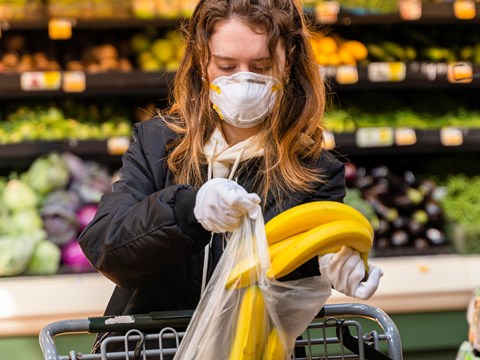10 million people across the UK are volunteering in their communities during the COVID-19 crisis and 78% will keep doing so after the lockdown.
More than £1bn has been spent on services that would never be used like cleaning. A nation in isolation is coming together, 64% of people say community ties have strengthened during the crisis.
The findings from the Insurance Group Legal and General suggest that each week, the work these volunteers are doing has an equivalent economic value of more than £357 million with each individual contributing on average three hours of their time.
One in every five UK adults (19%) has volunteered their time for community-level activities or organisations since the start of the lockdown on March 23rd. This includes nearly a quarter (23%) of furloughed workers.
Royal Voluntary Service has been leading the volunteering efforts in response to the Coronavirus crisis.
The charity has been working together with its corporate partner Legal & General, with employees of the FTSE100 company taking part in volunteering efforts including making phone calls to check in on vulnerable individuals.
67% of volunteers are helping with grocery shopping for others and a quarter (26%) have collected and delivered medicines or prescriptions. 16% of those donating their time have volunteered to make calls to people in a bid to combat loneliness. All of this activity is separate to the actions of those people serving in the formal NHS volunteer programme.
Across the generational divide, people are coming together to give up their time and help those in need, according to the Isolation Economyresearch. More than a fifth (22%) of those aged between 35 and 54 were volunteering for instance, as are 18% of over-55s. Millennials, while the least likely to volunteer (17%), gave up the most time – an average of 3.5 hours a week on grocery shopping and 4.4 hours if volunteering in other ways. Almost a third (29%) of UK adults believe that the younger generations have taken on more responsibility during the lockdown to support their parents and grandparents.
This spirit of supporting others is more than a short-term trend. More than three-quarters of those volunteering plan to continue helping those in need after the lockdown.
Community ties have also strengthened under the lockdown. The Isolation Economy research also reveals that two-thirds (64%) of UK adults feel their communities have ‘come together to help each other’ during the crisis.
This renewed community spirit includes extending financial support to local businesses. Families have tried to help those that help them, continuing to pay cleaners, gardeners and other workers for services they knew they would never be able to use under lockdown. £637 million was spent on unused goods and services between the start of the lockdown on 23rd March and the end of April – a figure that has now risen to more than £1 billion two months into lockdown. UK adults have spent £170 million on prepaid vouchers and coupons and 60% plan to buy more goods from local stores in a bid to help local economies following the lockdown.







